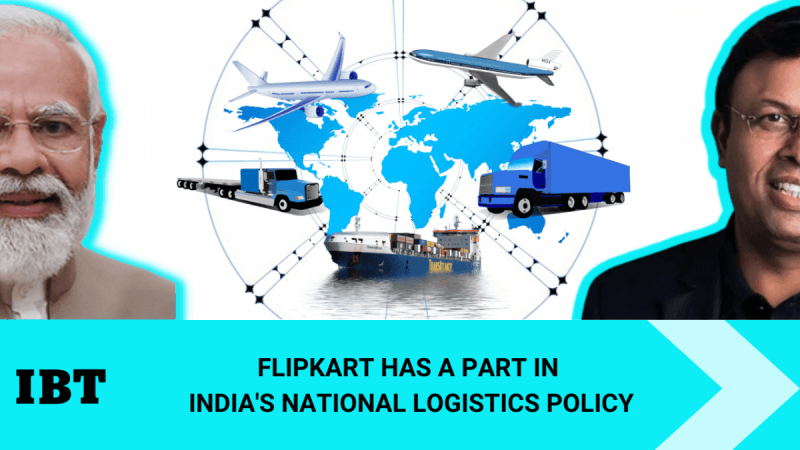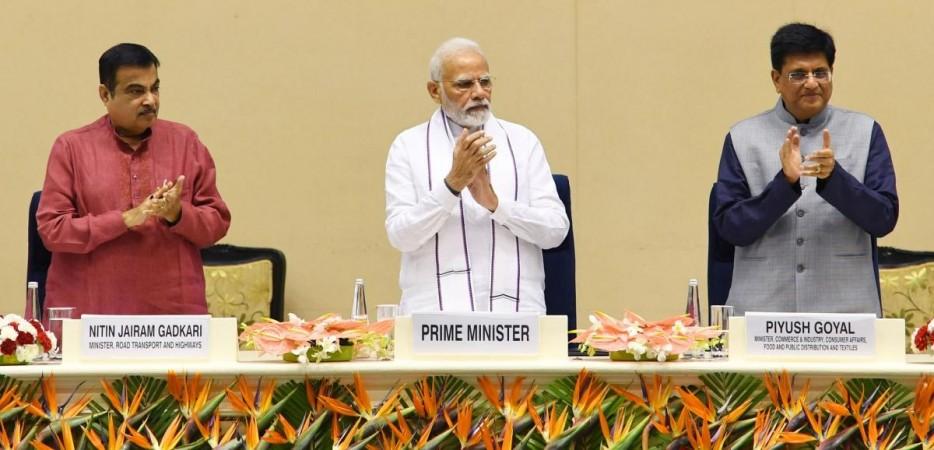Prime Minister Narendra Modi on Saturday launched the National Logistics Policy, calling it a significant step in fulfilling the 'Pran' (vow) of India being a developed country. The Prime Minister noted that in India, which has become the fifth largest economy in the world, things are changing rapidly.
"To ensure quick last-mile delivery, end transport-related challenges, save time and money of the manufacturers, prevent wastage of the agro-products, concerted efforts were made and one of the manifestations of those efforts is today's National Logistics Policy," he said.
Flipkart played its part
The bulwarks of the new policy include the Unified Logistics Interface Platform (ULIP), which will bring all the digital services related to the transportation sector into a single portal. The PM said that ULIP will bring all the digital services related to the transportation sector into a single portal, freeing the exporters from a host of long and cumbersome processes.
ULIP will integrate seven ministries, including the Ministry of Ports, Shipping and Waterways, the Ministry of Civil Aviation, the Ministry of Road Transport and Highways, the Ministry of Commerce and Industry, the Ministry of Railways, the Ministry of Finance, and the Ministry of Electronics and Information Technology, on one platform for seamless cargo movement across the country. The government will integrate around 17 digital systems from these ministries on ULIP.
ULIP will be used for management of inventory, generating digitised documents, tracking and tracing, grievance redress, and risk-based import clearance. To ensure a fail-safe for the system, the government will hire third-party companies for the development, operation and maintenance of ULIP.

Joining the government in its efforts to streamline the digital system, Flipkart played a part. Rajneesh Kumar, Chief Corporate Affairs Officer at Flipkart, said the e-commerce firm was deeply involved in conceptualising and developing the early prototype of ULIP while working with govt's think-tank NITI Aayog.
NLP to revamp every sector
Giving the example of a "Cheetah" - incidentally on the day when he witnessed the release of the felines from Namibia in Madhya Pradesh's Kuno National Park, the Prime Minister said that luggage should move at rapid speed.
"The echo of Make in India and India becoming self-reliant is everywhere. India is setting big export targets and is also fulfilling them. The notion that India is emerging as a manufacturing hub, is stabilising in the mind of the world. If we study the PLI scheme we will find that the world has accepted it," Modi said.
In such a situation, he said the National Logistics Policy will bring new energy to all sectors. PM Modi pointed out that the PM Gatishakti National Master Plan will be supporting the National Logistics Policy in all earnest. He emphasised that for the products manufactured in India to dominate the world market, it is crucial to have a strong support system.
"The National Logistics Policy will greatly help us modernise this support system," he said.

Commerce and Industry Minister Piyush Goyal outlined the merits of PM's National Master Plan or GatiShakti working in conjunction with the new National Logistics Policy.
Goyal said that there are as many 900 data layers available in India and the process of de-layering has begun for ease of doing business and cutting through bottlenecks. Look at the layers available - from transmission lines to telecom towers, from rivers to railways lines, from highways to wildlife sanctuaries, one has to rapidly scale up and create a robust system that reduces costing, planning, designing, tendering and monitoring by filling in the gaps.
PM Modi also pointed out that the issues related to logistics are reduced and when the country's exports increase, small industries and the people working in them benefit the most. National Logistics Policy has not come out of the blue, there are 8 years of hard work behind it, the PM claims.
"Strengthening of the logistics sector will not only make the life of common man easier but will also help in increasing the respect of labour and workers," PM Modi added.








